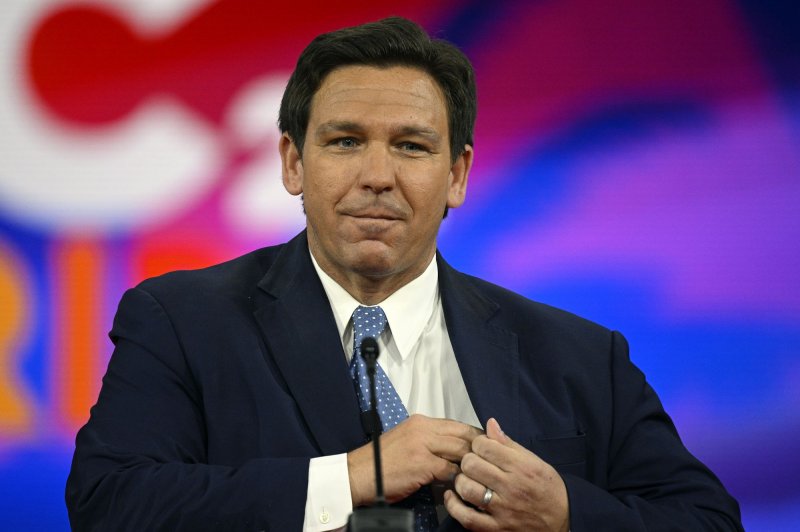1 of 5 | The Florida Senate bill to establish an election crimes office, which Florida Gov. Ron DeSantis has backed, passed the Senate on Friday. File Photo by Joe Marino/UPI |
License Photo
March 5 (UPI) -- Florida senators passed a bill to set up an election crimes and voter fraud office, and raise penalties despite opponents to the legislation asserting that voter fraud is extremely rare.
The bill passed by a 23-15 vote Friday, mostly along political lines, with the Republican majority voting in favor of the bill and Democrats voting against it. Democrat Loranne Ausley said she initially voted yes, by accident, but the vote has since been changed.
"Please know that I did not intentionally vote for the bad elections bill, SB 524," she posted on Twitter. "After nine hours in the chamber today, I pushed the wrong button. It has been changed. Good reason not to debate such important issues after dark."
One Republican state Sen. Jeff Brandes voted against it.
The bill would create an Office of Election Crimes and Security within the Department of State, which would make Florida one of the first states to have an agency solely dedicated to election crimes and voter fraud.
The new office in Tallahassee would aid the secretary of state in reviewing alleged incidents of election law violations, initiate independent inquiries and oversee a voter fraud hotline.
Florida Gov. Ron DeSantis would also consult with the executive director of the State Department of Law Enforcement to appoint at least one special officer to investigate alleged violations of election laws in each of its regional offices under the bill's provisions.
The bill would also raise the penalty for anyone collecting, possessing or submitting more than two absentee ballots in addition to his or her own from a misdemeanor to a felony.
Some opponents, including Brandes, argued that the bill is unnecessary because voter fraud is extremely rare and the bill would duplicate efforts already done by the secretary of state and Department of Law Enforcement and attorney general to ensure election security.
"For 15 people to go after what is potentially a handful of complaints that will ultimately be substantiated is just absolutely almost comical," Brandes said during debate on Friday referring to suggestions to assign 15 investigators to the office. "So I am not going to support this bill today."
Voting rights groups and other opponents also worried the heightened penalties and security presence could scare voters away and intimidate poll workers.
"Involving law enforcement with this sort of vague mandate obviously creates issues and can have certainly a detrimental effect in terms of the ability of voters to cast ballots if they're worried about law enforcement involvement," Daniel Griffith, Secure Democracy USA policy director, told The New York Times. "And it has a detrimental effect on election officials if they're worried that there's going to be law enforcement over their shoulder."
State Sen. Travis Hutson, the bill's sponsor, defended the bill during debate on Friday, saying the office would uncover more fraud and help the state handle more allegations.
"We did have great elections, the governor mentioned that," Hutson said. "But I would submit to you that we can always do better."
"I will say there is no voter intimidation or no suppressing votes in this bill."
The bill now goes to the state's House of Representatives and could pass as soon as next week and go before Florida Gov. Ron DeSantis to sign it, who has backed the bill and made election reform a top priority despite the 2020 election in Florida having no major issues.
Republican state Sen. Dennis Baxley said the 2020 election in Florida was a "gold standard" for the country, while introducing another voting restrictions bill, Senate Bill 90, which added more identification requirements for absentee ballots last April. Baxley said the election reform was still needed to avoid potential problems.
DeSantis signed SB90 into law in May.
The latest legislation in the election battleground state could become the first major election-related bill to pass this year after a wave of voting restriction laws began last year with 34 laws passed in 19 states.















